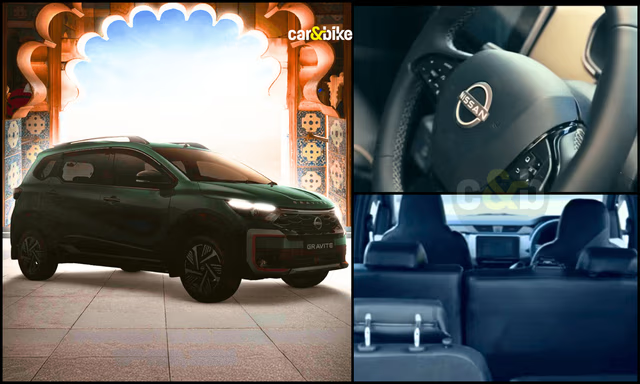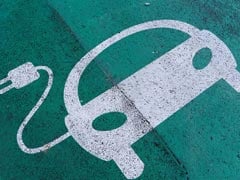Budget 2018: Expectations For The Auto Industry

As we get ready to see what the Budget 2018 has to offer for car buyers, the auto industry too is eagerly awaiting to learn what all of it will be about. This is the first Budget after the introduction of GST and we all know how the prices of cars were affected by the introduction of the Goods and Services Tax. GST did away with all the indirect taxation but the additional cess on luxury cars acted as a dampner for the car makers. However, luxury car makers are expecting that the import duty for its Completely Built Units (CBU) to be reduced after this increase.
Rohit Suri, President and Managing Director, Jaguar Land Rover India, said, "2017 has proved to be a good year despite several policy and regulatory developments including GST and demonetisation. GST is a significant reform that the country needed, and we appreciate the government's efforts for a smooth transition. However, to operate in any market, carmakers need reasonable tax rates. Current GST tax rates at 48% for sedans and 50% for SUVs in the premium segment are extremely high. To help expand the market and generate more jobs in this segment of the auto industry, we would urge the government to not only reduce these taxes to reasonable levels, include left out taxes such as road tax etc. within the GST regime, but also ensure stabilization/longer term policies and tax regimes."
Many carmakers like Audi and Mercedes-Benz had to change their strategy for India post the introduction of GST and the added cess. If the import duty is reduced with Budget 2018, then carmakers will look to bring in new models to India as also electric cars.
Also Read: No Respite For Auto Industry In Budget 2018
Considering that electric mobility has taken a big step in the country, the Society of Manufacturers of Electric Vehicles (SMEV), has urged the government to reduce GST rate to 5% on all electric vehicles and electric vehicle subsystems in Budget 2018. The body sees unreasonably high GST as one of the key impediments to faster adoption of electric vehicles in the country and as one of the main stumbling block in achieving the electric-green vehicle adoption target as visualized in Government of India's Faster Adoption and Manufacturing of (Hybrid &) Electric Vehicles policy rolled out two years back with much fanfare. It has also suggested rebate on Income Tax for consumers adopting Electric Vehicles. It states that many countries such as Norway, France, Canada, Denmark and Netherlands have already implemented this policy in their respective systems and have garnered a plethora of benefits out of it. This will also help in faster adoption of electric mobility in India and it's likely that the 2030 deadline could be met.
Jeetender Sharma, MD - Okinawa Scooters, said, "The electric vehicles segment today is at a point of inflexion and there is need to take a collective approach from all the industry stakeholders to ensure this vertical drives up to the next stage of growth. The upcoming finance budget FY 18-19, will be closely watched by the industry as it will determine the Government's will to see this sector reach the highs that it has been speaking of translate into action. Need of the hour is to incentivize Research & Development (R&D) which is key to Innovation and Manufacturing that will push the 'Make in India' agenda ahead. I think the vision statement should be revisited, 'Develop and Make in India' for the EV segment. The other aspect which we expect the Finance Minister to be generous about is the Goods and Services Tax (GST), which needs to be rationalized to ensure that EVs don't become dearer, which currently at a high of 12% makes them beyond the reach of prospective customers. Keeping GST at 5% will be a welcome step. Also, the RTO fee waiver will further the cause of overall effective pricing for EVs."
It's unlikely that the prices of cars or bikes will come down post today's Budget 2018, but we expect a revision in the cess for Hybrid and electric cars and we certainly hope that the suggestions made by the industry are taken into account.
Latest News
 car&bike Team | Feb 8, 2026Select Harley-Davidson Motorcycles To Attract Zero Duty Under Upcoming India-US FTA Interim Agreement: ReportPrimary beneficiaries are expected to include models in the 800 to 1600 cc segment2 mins read
car&bike Team | Feb 8, 2026Select Harley-Davidson Motorcycles To Attract Zero Duty Under Upcoming India-US FTA Interim Agreement: ReportPrimary beneficiaries are expected to include models in the 800 to 1600 cc segment2 mins read Jaiveer Mehra | Feb 8, 2026Tata Punch EV Facelift Revealed Ahead Of LaunchSole image of the updated EV previews some of the design updates ahead of its launch on February 20.1 min read
Jaiveer Mehra | Feb 8, 2026Tata Punch EV Facelift Revealed Ahead Of LaunchSole image of the updated EV previews some of the design updates ahead of its launch on February 20.1 min read Jafar Rizvi | Feb 7, 2026Nissan Gravite Interior Spotted Ahead Of February 17 DebutThe Gravite’s interior appears to carry over the familiar layout from the pre-facelift Renault Triber, with only minor updates expected.2 mins read
Jafar Rizvi | Feb 7, 2026Nissan Gravite Interior Spotted Ahead Of February 17 DebutThe Gravite’s interior appears to carry over the familiar layout from the pre-facelift Renault Triber, with only minor updates expected.2 mins read car&bike Team | Feb 7, 2026Jawa 730 Twin UnveiledJawa Moto has introduced the 730 Twin, the fourth model in its lineup to be based on the 750 platform.2 mins read
car&bike Team | Feb 7, 2026Jawa 730 Twin UnveiledJawa Moto has introduced the 730 Twin, the fourth model in its lineup to be based on the 750 platform.2 mins read car&bike Team | Feb 6, 2026Indian Motorcycle Parts Ways With PolarisAs America’s first motorcycle brand prepares to celebrate its 125th anniversary, Indian Motorcycle has parted ways with former parent Polaris to become an independent company.1 min read
car&bike Team | Feb 6, 2026Indian Motorcycle Parts Ways With PolarisAs America’s first motorcycle brand prepares to celebrate its 125th anniversary, Indian Motorcycle has parted ways with former parent Polaris to become an independent company.1 min read car&bike Team | Feb 6, 2026BMW F 450 GS Based Sportbike Spotted On TestThe upcoming supersport machine is expected share the same parallel-twin engine with the upcoming BMW F 450 GS.1 min read
car&bike Team | Feb 6, 2026BMW F 450 GS Based Sportbike Spotted On TestThe upcoming supersport machine is expected share the same parallel-twin engine with the upcoming BMW F 450 GS.1 min read
 Bilal Firfiray | Feb 4, 2026Volkswagen Tayron R-Line Review: Sensible Flagship For IndiaVolkswagen has introduced a made-in-India flagship SUV that offers space, comfort, performance, and German driving finesse in a practical three-row package. But is the Tayron R-Line good enough?6 mins read
Bilal Firfiray | Feb 4, 2026Volkswagen Tayron R-Line Review: Sensible Flagship For IndiaVolkswagen has introduced a made-in-India flagship SUV that offers space, comfort, performance, and German driving finesse in a practical three-row package. But is the Tayron R-Line good enough?6 mins read Preetam Bora | Feb 2, 2026TVS NTorq 150 Road Test Review: Bigger, Better & More Efficient!We test the new TVS NTorq 150 out in the real world to get a sense of what it offers in terms of performance, dynamics and fuel economy.7 mins read
Preetam Bora | Feb 2, 2026TVS NTorq 150 Road Test Review: Bigger, Better & More Efficient!We test the new TVS NTorq 150 out in the real world to get a sense of what it offers in terms of performance, dynamics and fuel economy.7 mins read Bilal Firfiray | Jan 21, 2026Tata Punch Facelift Review: New Turbo Engine; Same Old SoulWith the update, the Tata Punch facelift retains its character of being a healthy runabout, which is perfect for Indian roads. But have these changes made it any better?7 mins read
Bilal Firfiray | Jan 21, 2026Tata Punch Facelift Review: New Turbo Engine; Same Old SoulWith the update, the Tata Punch facelift retains its character of being a healthy runabout, which is perfect for Indian roads. But have these changes made it any better?7 mins read Amaan Ahmed | Jan 17, 2026Bajaj Chetak C25 First Ride Review: Basic, Likeable E-Scooter For First-Time RidersThe Chetak C25, in quite a few ways, is poles apart from the larger and more powerful 30 and 35 Series models, but in its mannerisms, it is very much a Chetak.8 mins read
Amaan Ahmed | Jan 17, 2026Bajaj Chetak C25 First Ride Review: Basic, Likeable E-Scooter For First-Time RidersThe Chetak C25, in quite a few ways, is poles apart from the larger and more powerful 30 and 35 Series models, but in its mannerisms, it is very much a Chetak.8 mins read Bilal Firfiray | Jan 9, 2026Toyota Urban Cruiser Hyryder: 10,000 km Long-Term ReviewAfter spending over three months and 10,000 km with the Toyota Urban Cruiser Hyryder Hybrid, we were impressed by its real-world mileage, seamless hybrid, practical comfort, and Toyota reliability. Is it the best C-SUV then?5 mins read
Bilal Firfiray | Jan 9, 2026Toyota Urban Cruiser Hyryder: 10,000 km Long-Term ReviewAfter spending over three months and 10,000 km with the Toyota Urban Cruiser Hyryder Hybrid, we were impressed by its real-world mileage, seamless hybrid, practical comfort, and Toyota reliability. Is it the best C-SUV then?5 mins read



























































































































